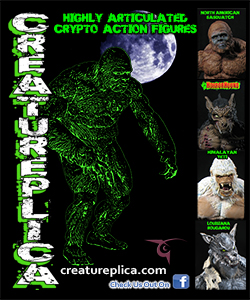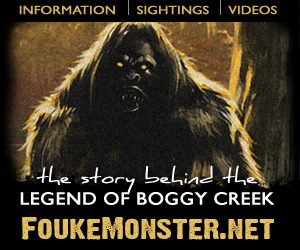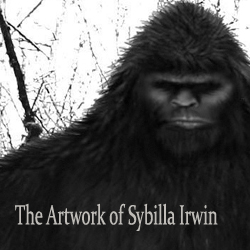Cryptozoology on Arthur C. Clarke’s Mysterious World
Posted by: Loren Coleman on March 19th, 2008
The late Arthur C. Clarke’s‘s Mysterious World broadcast many segments on cryptids. Here are some examples:
Cryptozoology 1 of 3
Cryptozoology 2 of 3
Cryptozoology 3 of 3
Sea Monster 1 of 3
Sea Monsters 2 of 3
Sea Monsters 3 of 3
Bigfoot Yeti 1 of 3
Bigfoot Yeti 2 of 3
Bigfoot Yeti 3 of 3
About Loren Coleman
Loren Coleman is one of the world’s leading cryptozoologists, some say “the” leading living cryptozoologist. Certainly, he is acknowledged as the current living American researcher and writer who has most popularized cryptozoology in the late 20th and early 21st centuries.
Starting his fieldwork and investigations in 1960, after traveling and trekking extensively in pursuit of cryptozoological mysteries, Coleman began writing to share his experiences in 1969. An honorary member of Ivan T. Sanderson’s Society for the Investigation of the Unexplained in the 1970s, Coleman has been bestowed with similar honorary memberships of the North Idaho College Cryptozoology Club in 1983, and in subsequent years, that of the British Columbia Scientific Cryptozoology Club, CryptoSafari International, and other international organizations. He was also a Life Member and Benefactor of the International Society of Cryptozoology (now-defunct).
Loren Coleman’s daily blog, as a member of the Cryptomundo Team, served as an ongoing avenue of communication for the ever-growing body of cryptozoo news from 2005 through 2013. He returned as an infrequent contributor beginning Halloween week of 2015.
Coleman is the founder in 2003, and current director of the International Cryptozoology Museum in Portland, Maine.










Remember watching these as a kid in the early 1980s. One of the first documentaries that got me interested in bigfoot/yeti.
Best theme song ever. Too bad it’s cut out of them.
I notice what Michael Newton may wish to examine as a possible eurypterid or sea scorpion in one of the topmost series of videos. Immediately after the three Mysterious World videos, in the fourth video, there is a lobster-like creature very briefly shown in a very clear photo. To judge from Newton’s illustration in his encyclopedia and from my Smithsonian Dinosaurs and Prehistoric Life, this may be a eurypterid, since there were a number of varieties. It does not exactly match either illustration, and the eyes may not be big enough, but it does seem remarkably similar. It’s so briefly shown, you won’t see it by fast forwarding, but it’s near the start of that video. The video is called “Cryptozoology and the bizarre” and the photo is right after the fish with one head and two bodies.
Just for info-the series has just been released on a 2 disc DVD set in the UK. You can get it via Amazon.
A. C. Clarke’s show was my childhood inspiration for my interest in cyptozoology. I still have a bunch of them recorded on old VHS tapes.
I have the Yeti and Bigfoot segments on DVD, as well as a segment on the Russian Wildman with Valentin Sapunov. God bless Arthur C. Clarke and may his family be comforted at this time.
An interesting aside (which will be of use to absolutely NOBODY here I guess LOL) is that in the sea serpent episode, the British guy who was talking about the giant squid attack on the sailor is John Cloudsley Thompson. He was at the battle of Villers Bocage in Normandy in June 1944 when famous German Waffen SS Tiger Tank ace Michael Wittmann blew his tank away from under him. He only just escaped with his life before his tank blew up.
He later became a Professor of Zoology.
http://www.war-experience.org/collections/land/alliedbrit/j-cloudsley-thompson/default.asp
Like I said, I doubt that will interest anybody though.
The best series ever done on the subject. Absolutely fascinated me as a kid (and still does, obviously!). Also, mr. Clarke was a gifted narrator and really got you thinking. His line that ‘somewhere right now within the sonar data files of the US Navy, there is likely evidence of sea monsters unknown to science’ or something similar, still gives me goose bumps.